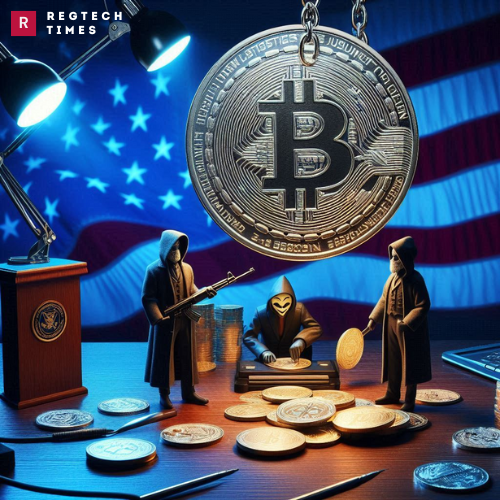Recent research from the United States Treasury raises concerns about the Non-Fungible Token (NFT) market’s vulnerability to illicit activities, including money laundering and fraud. The report illustrates how criminals use the NFT ecosystem to launder money, obscure the origins of illicit funds, and carry out numerous schemes. This paper emphasizes the critical need for regulatory measures to protect the rapidly expanding digital asset industry.
Dark Side of the Non-Fungible Token Boom
Non-Fungible Token (NFT), or unique digital assets that prove ownership of a digital item, have transformed the art and collectibles market. However, their increased popularity has attracted criminal elements. The Treasury’s evaluation reveals that illicit actors utilize NFTs to facilitate money laundering, typically merging this practice with other methods to hide the origins of ill-gotten revenue. The secrecy of transactions in the NFT market exacerbates the situation, making it difficult to trace stolen NFTs or those obtained illegally.
Anonymity and lack of regulation
One of the main concerns raised by the Treasury is the anonymity of buyers and sellers on Non-Fungible Token platforms. Unlike traditional banking systems, which require extensive customer authentication, many NFT marketplaces permit transactions without requiring comprehensive consumer information. This absence of control allows criminals to operate undetected.
The research also states that criminals can easily sell or exchange stolen NFTs to evade detection and mask the identities of the true owners. This capacity to rapidly transfer ownership without inspection makes the NFT market very appealing for laundering money gained via numerous predicate crimes.
Common Scams in the NFT Market
The Treasury report describes numerous types of fraud that occur in the Non-Fungible Token industry. One popular fraud is known as “rug pulls,” in which scammers build up an NFT enterprise, attract considerable investment, and then disappear with the funds, leaving investors with worthless assets. Another common type of fraud is phony sales, in which fraudsters use false transactions to artificially boost the perceived value of an NFT. The research paper also addresses piracy and impersonation, in which criminals impersonate the rights granted by an Non-Fungible Token and sell digital art that they do not own or have rights to, deceiving both consumers and original artists.
Call for Regulatory Measures
To address these concerns, the Treasury advises that competent authorities develop specific rules and compliance requirements for Non-Fungible Token exchanges. This could include publishing circulars, notices, and directives aimed at digital assets, explaining how existing regulations relate to NFTs and their trading platforms. By doing so, the regulatory framework can ensure that NFT marketplaces take appropriate measures to prevent money laundering and fraud.
Furthermore, the Treasury highlights the necessity of educating the business sector on these regulatory requirements. Increased knowledge among NFT platforms and users can help create more safe and compliant marketplaces.
Broader Implications for the Crypto market
While the Non-Fungible Token market is the focus, the paper also addresses larger concerns about illicit financing in the cryptocurrency ecosystem. For numerous years, the United States government has investigated money laundering and terrorism financing in the cryptocurrency sector. Democratic and Republican legislators have addressed these challenges through various clauses and measures, demonstrating a bipartisan understanding of the risks involved.
Despite the fact that most money laundering and terrorist financing actions are conducted using fiat currency, the rapid acceptance of digital assets demands vigilant regulatory scrutiny. The Treasury’s judgment is consistent with previous research, including a March analysis that concluded there was no immediate need for particular copyright and trademark violation legislation for NFTs. However, the latest report’s emphasis on monetary concerns underlines the importance of combating financial crimes in the NFT market.
The US Treasury report is a wake-up call for the Non-Fungible Token market, emphasizing the vital need for regulatory measures to combat money laundering and fraud. As NFTs become more widespread, the vulnerabilities identified in the paper must be addressed to preserve the market’s integrity and security. By enforcing strict compliance rules and increasing stakeholder knowledge, the NFT market may become a safer and more transparent arena for trading digital assets.


